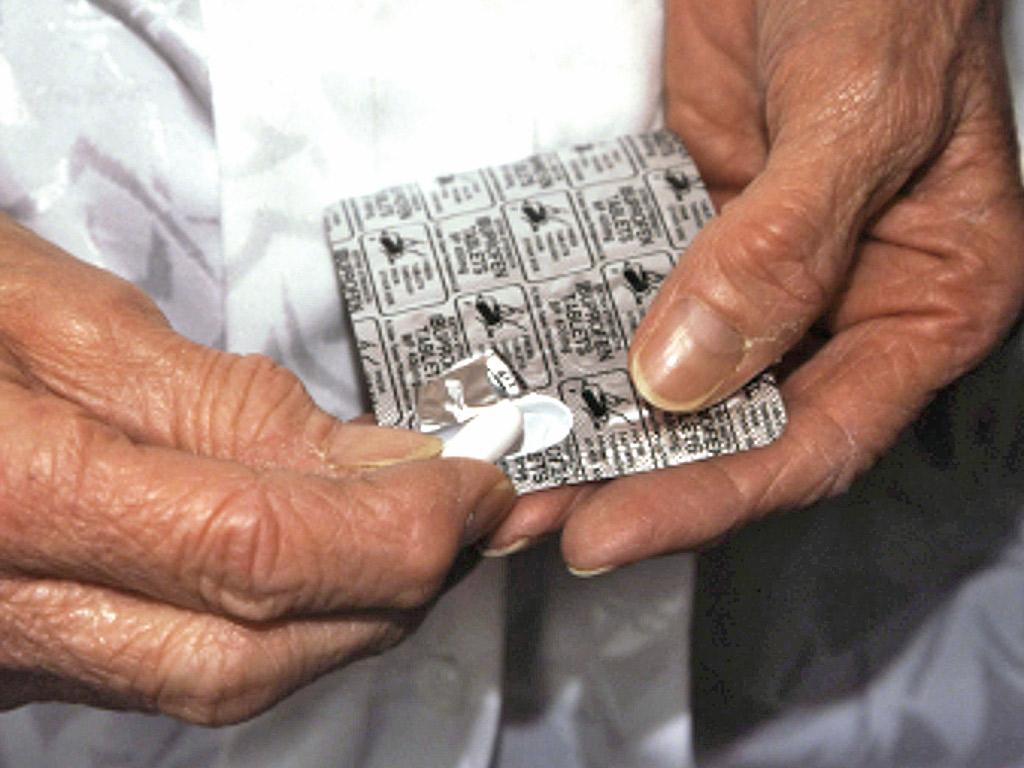Is ibuprofen the key to anti-ageing? Study finds painkiller extends life of flies and worms by equivalent of 12 human years
Drug also helped maintain fitness and health during ageing

Tests on a commonly-used painkiller have revealed the drug significantly extended the lives of worms and flies, sparking hopes it could be the key to anti-ageing in humans.
In laboratory tests, ibuprofen was found to extend the lives of yeast, worms and fruit flies by the equivalent of about 12 years in human terms.
Ibuprofen is a nonsteroidal anti-inflammatory drug used to reduce pain, inflammation and help with a temperature. First created in the 1960s, it became available to buy over the counter in the 1980s.
In the study, the drug appeared to have an all-encompassing anti-ageing effect, with creatures living longer as well as maintaining their fitness and health as they aged.
Lead researcher Professor Michael Polymenis, from Texas A&M University in the US, said: "We are not sure why this works but it is worth exploring further.
"This study was a proof of principle, to show that common, relatively safe drugs in humans can extend the lifespan of very diverse organisms.
"Therefore, it should be possible to find others like ibuprofen with even better ability to extend lifespan, with the aim of adding healthy years of life in people."
A possible clue to the effect came when the scientists found that ibuprofen interfered with the ability of yeast cells to pick up tryptophan, an amino acid protein building block found in every organism. Tryptophan is an essential nutrient obtained in the diet from protein.
In the new research, scientists exposed the three model organisms to ibuprofen. The doses used were broadly comparable to the doses consumed by humans.
The treatment added about 15 per cent to the lives of the different species, which in human terms amounts to an extra dozen or so years of life.
Both the treated flies and worms appeared healthier in old age than those left untreated.
Co-author Dr Chong He, from the Buck Institute for Age Research in California, US, said: "We have some preliminary data on worms that showed that this drug also extended the health span in worms.
“It made them live not just longer but also more healthy. You can measure the thrashing of the worms. If they’re healthy, they do have a tendency to thrash a lot, and also we can measure the pumping as they swallow, because if they’re healthy, the pumping is faster.
Dr Brian Kennedy, also from Buck, said his institute is primarily interested in identifying why people are more prone to becoming sick as they age.
He said: "We think that by understanding those processes, we can intervene and find ways to extend human health span, keeping people healthier longer and slowing down ageing. That's our ultimate goal.
"The research shows that ibuprofen impacts a process not yet implicated in ageing, giving us a new way to study and understand the ageing process."
Molecular biologist Ellen Nollen, of the University of Groningen in the Netherlands, told Science Mag the study supports further testing on mice. “They convincingly show that ibuprofen prolongs life span in these model organisms,” she said.
The study Enhanced Longevity by Ibuprofen, Conserved in Multiple Species, Occurs in Yeast through Inhibition of Tryptophan Import has been published today in the online journal Public Library of Science Genetics.
Additional reporting by PA
Subscribe to Independent Premium to bookmark this article
Want to bookmark your favourite articles and stories to read or reference later? Start your Independent Premium subscription today.

Join our commenting forum
Join thought-provoking conversations, follow other Independent readers and see their replies